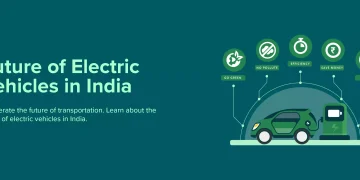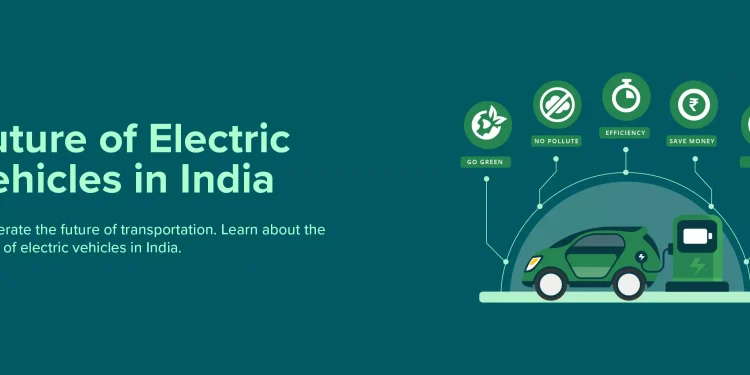Electric Vehicles (EVs) are driving India towards a cleaner, greener future. With growing pollution concerns and rising fuel prices, EVs offer an exciting alternative to traditional petrol and diesel vehicles. But how ready is India for this shift, and what opportunities and challenges lie ahead?
Let’s explore the future of EVs in India — from government initiatives to technological advances and market trends.
🌟 Why EVs Matter for India
✅ Environmental Benefits: EVs produce zero tailpipe emissions, helping combat air pollution in cities like Delhi and Mumbai.
✅ Energy Independence: Reducing dependence on imported fossil fuels improves India’s energy security.
✅ Cost Savings: Lower operating and maintenance costs compared to internal combustion engines.
✅ Global Trends: As the world shifts to electric mobility, India aims to be part of this global revolution.
🚗 Current State of EVs in India
🔹 Growing Market: Sales of electric two-wheelers and cars are steadily increasing, with brands like Tata Nexon EV, Ather Energy, and Ola Electric gaining popularity.
🔹 Charging Infrastructure: The government and private sector are rapidly expanding charging stations across cities and highways.
🔹 Government Support: Policies like Faster Adoption and Manufacturing of Hybrid & Electric Vehicles (FAME-II) provide subsidies and incentives to buyers and manufacturers.
🚀 Opportunities Ahead
✅ Manufacturing Hub: India is positioning itself as a manufacturing hub for EVs and batteries, attracting global investments.
✅ Job Creation: The EV industry promises new jobs in manufacturing, maintenance, and charging infrastructure.
✅ Technological Innovation: Advances in battery tech, such as solid-state batteries, could improve range and affordability.
✅ Renewable Integration: Combining EVs with solar power could create sustainable energy ecosystems.
⚠️ Challenges to Overcome
🔹 High Initial Cost: Despite subsidies, EVs often remain more expensive upfront than traditional vehicles.
🔹 Charging Infrastructure: While improving, charging stations are still limited, especially in rural areas.
🔹 Battery Disposal: Proper recycling and disposal of EV batteries is an environmental concern.
🔹 Range Anxiety: Fear of running out of charge remains a barrier for many consumers.
🌟 What Can Consumers Expect?
✅ More Choices: Increasing models across price ranges — from affordable scooters to premium cars.
✅ Better Infrastructure: More fast chargers and battery swapping stations.
✅ Improved Performance: Technological advancements will lead to longer ranges and shorter charging times.
✅ Government Benefits: Continued subsidies and tax breaks for EV buyers.
🚀 Final Thoughts
The electric vehicle revolution in India is accelerating, but it requires collaboration between government, industry, and consumers. By embracing EVs, India can reduce pollution, save energy, and create a more sustainable transportation future.
💬 Are you considering buying an electric vehicle or curious about EV technology? Share your thoughts and experiences in the comments! Let’s drive into the future together. ⚡🚗✨
Would you like me to add comparisons of popular EV models in India or tips for first-time EV buyers? Let me know!Tools

































































